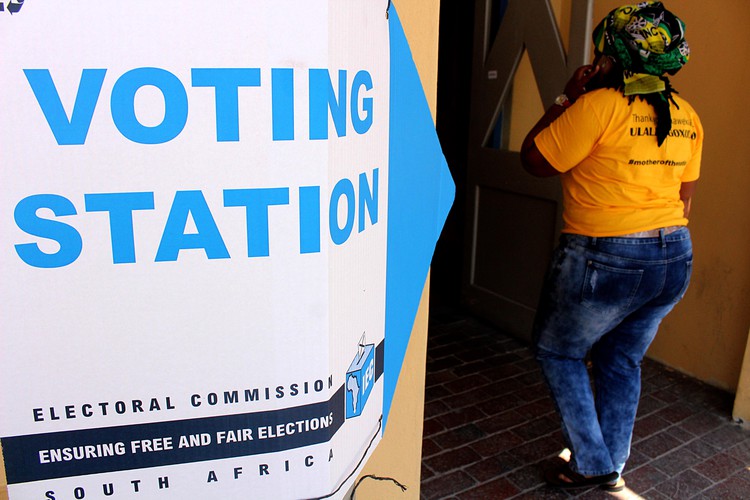
4 December 2023
The Constitutional Court has at last made its ruling on challenges to the Electoral Amendment Act on how independent candidates will contest in the upcoming 2024 general elections. Archive photo: Masixole Feni
The Constitutional Court has finally made its ruling on challenges to the Electoral Amendment Act on how independent candidates will contest in the upcoming 2024 general elections.
The court set aside the requirement for independent candidates to get the signatures of 15% of the people living in the region they are contesting in order to be eligible to stand for the 2024 provincial and national elections.
In a majority judgment, the court ruled that only 1,000 signatures are required, with Justice Jody Kollapen cautioning that the gains made in the Electoral Amendment Act, which for the first time allows for independent candidates to contest elections, would be “hollow” if Parliament put up barriers.
Referring to the court’s previous judgment, which opened the door for independent candidates, Justice Kollapen said this had been a “historic moment” that had been met with “a first-of-its kind” signature requirement.
While it had been argued that the signature was to prevent “frivolous election participation”, the fact that the legislature had decided to use a quota system, using provinces as constituencies, meant that some independent candidates and new parties would require between 10,000 and 14,000 signatures.
The majority held that this constituted an unjustifiable barrier and placed a burden on candidates which would require immense time and energy.
“Why a signature requirement now when one was never needed before?” Justice Kollapen asked.
He said given the looming election, there was no time to send the matter back to Parliament to amend the Act, and ordered a “reading in” of a new requirement of 1,000 signatures.
In a minority judgment, Chief Justice Raymond Zondo said he would have dismissed the application, which was brought by Mmusi Maimane and One South Africa Movemnet NPC, as it did not affect anyone’s rights.
The Independent Candidate Association of South Africa did not fare as well. Its challenge to the 200/200 split in seats allocated in the National Assembly was dismissed.
It had argued that an independent candidate must get many more votes than political party candidates in order to gain a seat in the National Assembly, because independents were only allowed to compete for 200 regional seats and not the 200 “compensatory seats” allocated only to political parties in the national elections.
It suggested that the playing fields would be levelled if the split were 350/50 seats.
Writing for the court, Justice Nonkosi Mhlantla said the 200/200 split passed constitutional muster, because it was grounded in proportional representation and would have little risk of “overhang” (where there were more elected officials than seats in the national assembly).
She said the IEC had explained that there was no mechanism under the current Act to correct the problem should overhang occur, and the association had not presented any viable solution to “combat the risk” that the IEC would not be able to declare the election.
Judge Mhlantla said the proposition that a vote for an independent candidate carried less weight than a vote for a political party candidate was without merit.
“It is based on the assumption that the voter will vote the same on both (the provincial and national) ballots.”
But many voters split their votes, and the 200/200 split was not irrational, nor did it impinge on any rights in the Bill of Rights, she said.
The court dismissed the application and ordered the parties to pay their own costs.
The court, which heard argument in the matters in August, handed down judgment on Monday following concerns expressed by the IEC and independent candidate, Zackie Achmat, that time was running out for proper election preparations.